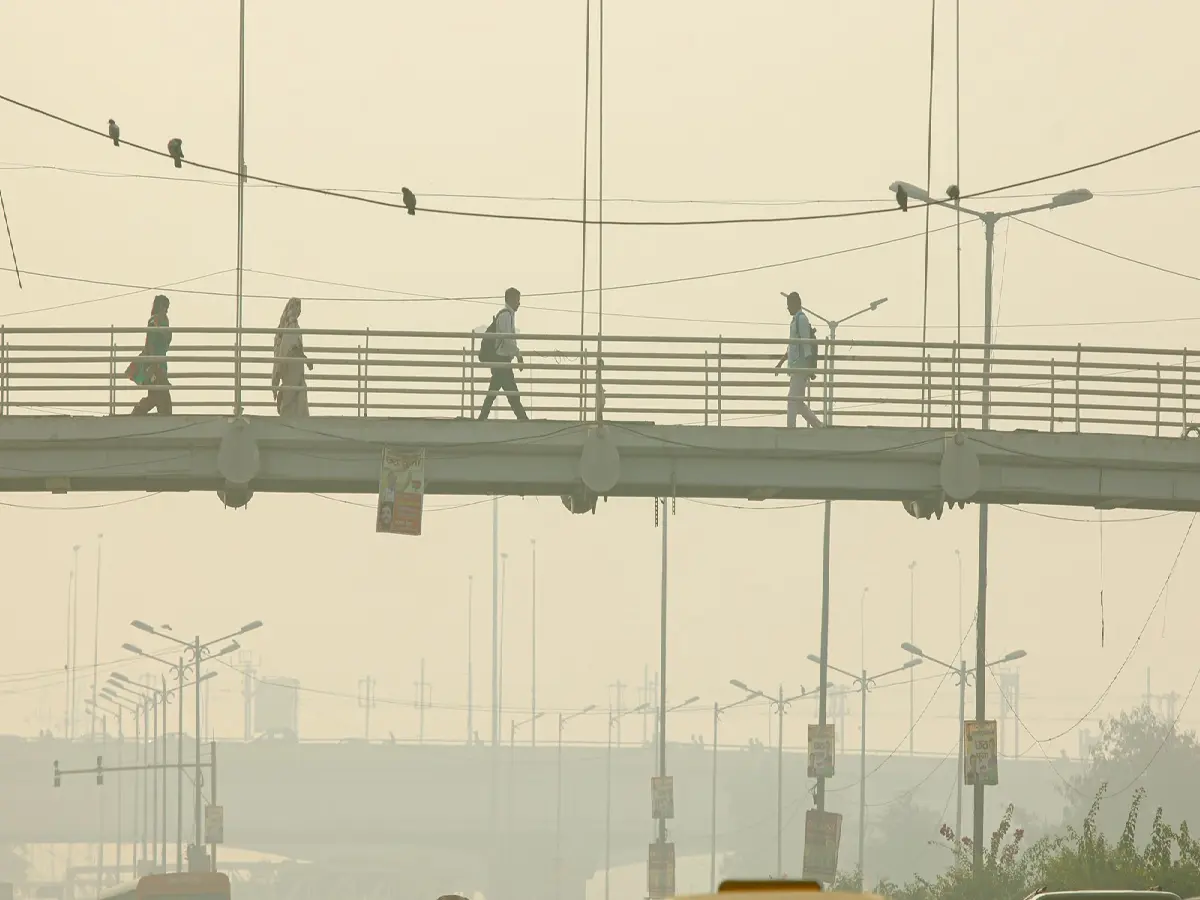On Saturday morning, Delhi’s air quality returned to the ‘ severe’ category after briefly improving earlier. At 11 a.m., the average air quality index (AQI) in the national capital was 427. The day before, the Central Pollution Control Board (CPCB) announced in its 4 p.m. advisory that the air quality was ‘ very poor’ at 397. However, the air quality continued to deteriorate, and by 6 a.m. on Saturday, the capital had an average AQI of 422.
Except for a few stations like Sri Aurobindo Marg, Sonia Vihar, Pusa, IHBAS Dilshad Garden, and Jawaharlal Nehru Stadium, all 26 air quality monitoring stations with operational data remain in the severe category. The Indian Institute of Tropical Meteorology (IITM) predicts that the air quality will be ‘ very poor’ between Sunday and Tuesday. This pattern is projected to continue over the next six days, it added.
The average particle matter pollution has also gradually increased since Friday evening. According to the CPCB, the average particulate matter 2.5 level was 212.5 micrograms per cubic foot at 11 a.m. on Saturday. At the same period on Friday, it was 178.6 mcg per cubic meter. By 8 p.m. on Friday, it had risen to 200 ng per cubic meter under calm winds.
The India Meteorological Department (IMD) reports that calm winds continue to prevail in Delhi as of Saturday lunchtime. According to the CPCB, an average wind speed of less than 10 km/h is unfavorable for pollution dispersal. A drop in temperatures and increased fog also keep pollutants trapped in the atmosphere.
On Saturday, the minimum temperature was 11.4 degrees Celsius, which is about typical. On Saturday morning, the capital was covered in shallow to moderate fog. As of 6.30 a.m., Safdarjung reported a minimal visibility of 300 meters, while Palam had a visibility of 800 meters. Dense fog is expected on Sunday. After that, until November 27, moderate fog is predicted to prevail.

